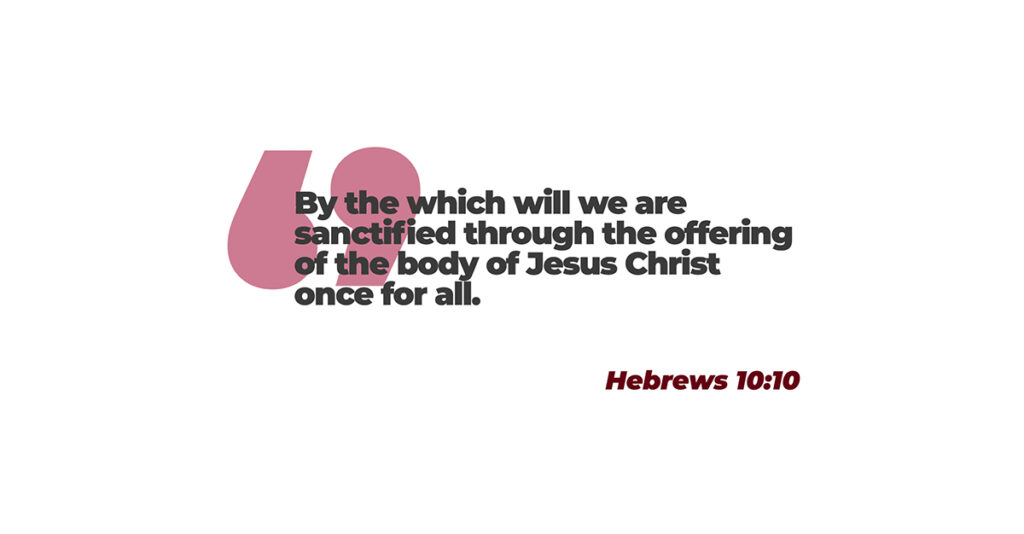CHARIS MINUTES
Watch the video to hear Andrew’s full answer on can sanctification be lost
The religious concept that most people have is that every time you sin a veil gets stitched back together and there’s a barrier between you and God until you get that sin confessed. The progression of this perception is that once you do confess the sin, the veil is rent and you can draw near to God again. It’s this idea of being in and out of the holy place. But that’s not what the Word of God pictures. It’s the opposite.

What does sanctification mean for our spirit, soul, and body?
When you become saved you are the workmanship of Christ but not in your physical body. This physical body is still to change and when you go to heaven you get a glorified body. Also, Christ’s workmanship at salvation is not in your mind as we are continually in the process of renewing it, but it’s not perfect yet. But in your spirit, you are as saved and perfect right now as you will ever be in eternity.
Where in Scripture does it mention the sanctification of our spirit?
In Ephesians chapter one, verse 13 says,
In whom ye also trusted, after that ye heard the word of truth, the gospel of your salvation: in whom also after that ye believed, ye were sealed with that holy Spirit of promise,
This means that you were vacuum-packed! The Holy Spirit encased your spirit and what’s more your new spirit is as Ephesians 4:24,
And that ye put on the new man, which after God is created in righteousness and true holiness.
Sanctification and holiness
At salvation your spirit is instantly vacuum-packed and sanctified and no sin penetrates that barrier. Your spirit, the part of you that’s in a relationship with God, is perfect and pure and it never changes. You have eternal redemption. Both verses in Ephesians form the scriptural foundation for answering the question of ‘can sanctification be lost’.

Can sanctification be lost or is it eternal?
So in verse ten, of Hebrews chapter 10, it says,
By the which will we are sanctified” The word sanctified means to make holy or to set apart “through the offering of the body of Jesus Christ once for all.
The words ‘once for all’ mean that sanctification through Jesus happens once. This instance in Scripture is to reinforce what was said in Hebrews, chapters seven and nine. In contrast, the Old Testament priests offered sacrifices every time you sinned, but in the New Covenant, one offering for sin gave you eternal redemption and eternal inheritance.
Sanctification, once for all time or once for all people?
I’ve had some people say, ‘Well, that doesn’t mean once for all time, that means once for all people. Well, keep reading through chapter ten of Hebrews. Look at the context in Scripture on sanctification. Hebrews 10:12 says,
But this man, after he had offered one sacrifice for sins for ever, sat down on the right hand of God;
The word “but” means this statement is in contrast to what was said previously. It’s referencing Jesus with ‘this man’ and making the point that there is a contrast between the way sanctification was done under the old covenant with the new covenant. This Scripture clearly and concisely states that there was one sacrifice for sins forever. So from Hebrews 10:10 and 10:12, we learn that sanctification is once for all time.
Additionally, when you look at the testimony that Jesus sat down at the right hand of God it should say something about the finality of the sacrifice and sanctification. If Jesus had to atone for my sins every time I mess up, and then I confess it to get it back under the blood, there’d be no such thing as Jesus sitting down with millions of Christians sinning and confessing their sins daily.
Now Jesus is seated. That means that the work of sanctification is over and the job is done.

